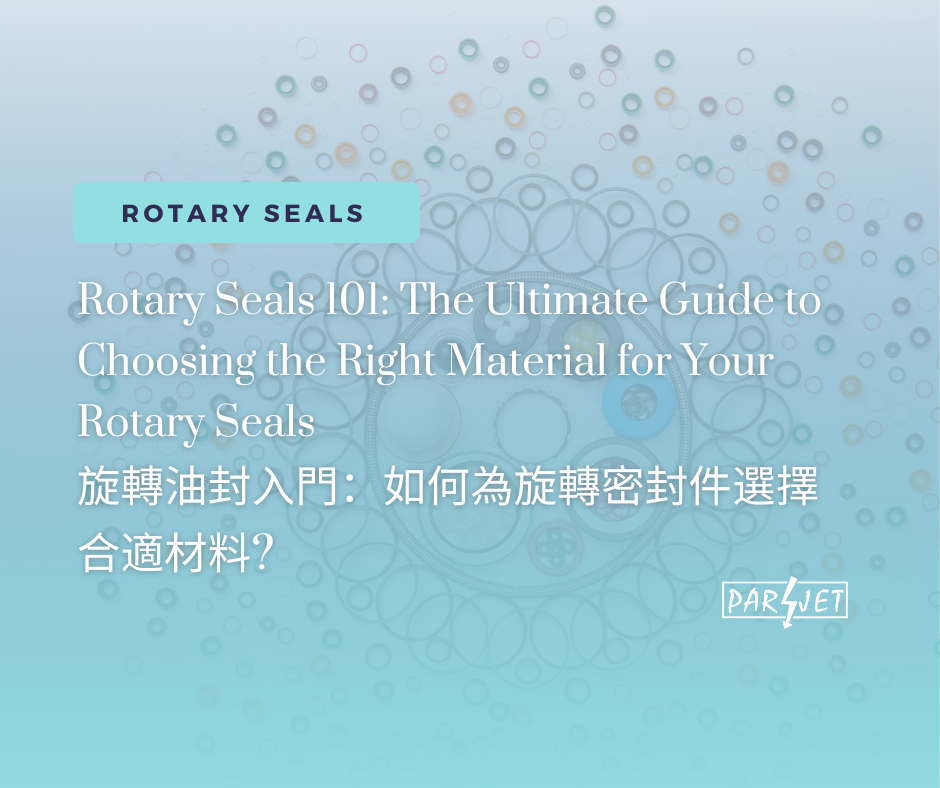
Rotary Seals 101: The Ultimate Guide to Choosing the Right Material for Your Rotary Seals
Rotary seals play a crucial role in various industries, ensuring the efficient operation of machinery by preventing leakage and contamination. One of the key factors that determine the performance and longevity of rotary seals is the choice of materials used in their construction. In this comprehensive guide, we will delve into the world of rotary seals, exploring the importance of material selection and providing valuable insights into choosing the right material for your specific application.
Understanding the Role of Rotary Seals
Rotary seals, also known as shaft seals or radial shaft seals, are designed to seal the interface between a rotating shaft and a stationary housing. These seals are essential for maintaining the integrity of the system by preventing the escape of fluids or contaminants and preserving the lubrication of moving parts. Whether in high-speed rotary applications or extreme operating conditions, selecting the appropriate material for rotary seals is paramount to ensure optimal performance and reliability.
6 Factors Influencing Material Selection
When it comes to choosing the right material for rotary seals, several factors must be taken into consideration to meet the unique requirements of each application. The following key factors influence material selection:
1. Wear Resistance: The material must exhibit high wear resistance to withstand the friction and abrasion encountered during operation.
2. Flexibility: The material should be flexible enough to accommodate the dynamic movements of the shaft while maintaining a tight seal.
3. Chemical Compatibility: It is essential to select a material that is compatible with the fluids and chemicals present in the system to prevent degradation or failure.
4. Temperature Resistance: The material must be able to withstand the temperature extremes of the operating environment without compromising its sealing properties.
5. Friction Requirements: The material should offer low friction characteristics to minimize energy loss and heat generation during operation.
6. Hardness: The hardness of the material should be optimized to ensure proper sealing without causing excessive wear on the mating surfaces.
Parjet’s Materials for Rotary Seals:
PTFE Compound (Polytetrafluoroethylene compound): PTFE is a popular choice for rotary seals due to its excellent chemical resistance, low friction properties, and wide temperature range. Parjet offers common compound selection like:
• Carbon Filled PTFE: Offers enhanced wear resistance and low friction properties.
• Carbon Fiber Filled PTFE: Provides improved strength and stiffness.
• Glass Fiber Filled PTFE: Enhances dimensional stability and resistance to deformation.
• Ekonol Filled PTFE: Suits the best for softer Sealing Surfaces.
• Graphite-Filled PTFE: Has better wear resistance than virgin PTFE
• PEEK Filled PTFE: Combines PTFE's chemical resistance with PEEK's mechanical properties.
• Calcium Silicate Filled PTFE: Provides excellent performance under Non-lubricated environment.
• PI Filled PTFE: Offers lowest co-efficient of friction and excellent mechanical strength.
Our HiPerLip® (PTFE Lip Seals with metal casing) and HiPerSeal® (Spring Energized Seals) are examples of rotary seals that utilize PTFE for superior performance.
Metal Casing: Combined with PTFE sealing lips in seals like HiPerLip®, metal casings provide structural support and enhance the seal's performance in high-speed applications.
Common selection includes:
• SS41 Carbon Steel: Standard material suitable for general applications without corrosion concerns.
• Stainless Steel 304: Ideal for general applications in corrosive environments.
• Stainless Steel 316: Recommended for applications involving corrosive media.
Gasket Materials:
NBR: Standard material for general applications without corrosion issues.
FPM (Viton): Suitable for high-temperature applications without corrosion concerns.
O-Ring Materials:
NBR, Viton, EPDM, Silicone, HPU: These materials offer varying levels of chemical resistance, temperature tolerance, and flexibility for different sealing requirements.
Spring Materials: Spring Energizers are made from corrosion-resistant alloys, spring energizers are used in seals like HiPerSeal® to maintain consistent sealing force in various operating conditions. Parjet provides Cantilever Spring, Canted coil Spring, and Helical Spring for various rotary application. Spring Materials such as 301 Stainless Steel, Hastelloy C276, Elgiloy, 302 Stainless Steel and 316 Stainless Steel are commonly used in rotary seals, each offering specific properties such as corrosion resistance, strength, and durability.
By carefully selecting the appropriate materials based on factors like wear resistance, temperature range, chemical compatibility, and mechanical properties, engineers can ensure optimal performance and longevity of rotary seals in diverse industrial applications.
For detailed guidance on sealing design selection and customized sealing solutions, contact Parjet, your trusted partner for high-performance rotary seals tailored to your unique needs.





